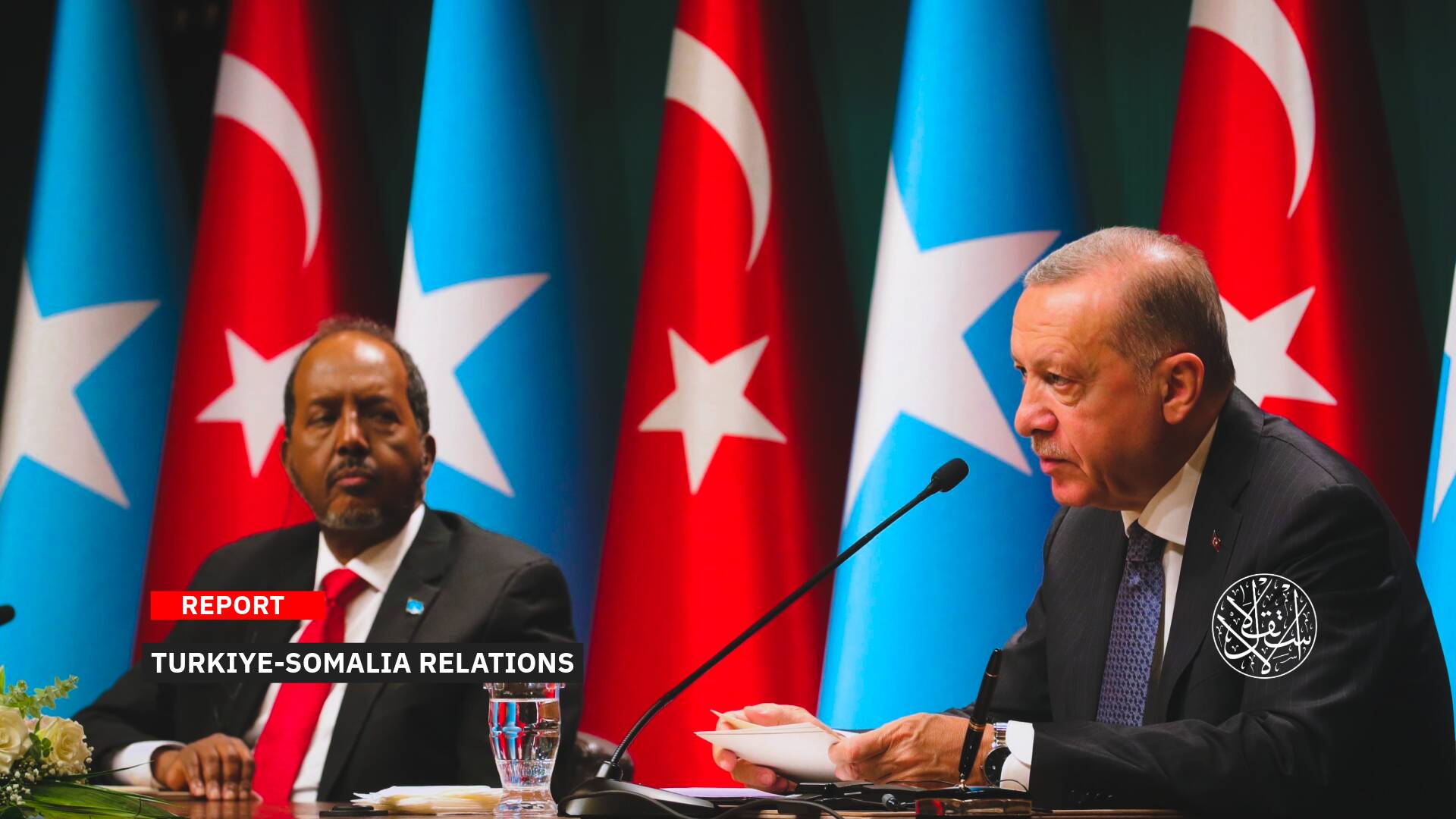Can American Muslims Challenge the No-Fly List That Denies Their Constitutional Rights?

Since the 9/11 incident in particular, the phenomenon of Islamophobia has increased more and more in American society, which has come to consider Muslims and Islam as others and alien forces.
Muslims are inexplicably monitored, they are arbitrarily refused to board planes, they are denied government care, their bank accounts are closed, and accusations are leveled against them without justification and without reason.
Then, when the rise of anti-Muslim sentiment in the United States seemed to be easing, Donald Trump was elected president in 2016 with an openly anti-Muslim agenda, and that sentiment accelerated again.
At the state level, there is more anti-Muslim legislation. Presently, different states have proposed 227 anti-Muslim bills, of which 22 have been passed and become laws, constituting an institutional violation of Muslims.
Especially the No-Fly List, which is a small subset of the US government's terrorism watch database, also known as the terrorist watchlist, as the Middle East Eye reported on October 17, 2022.
The No-Fly List
In its report, the British website revealed that American Muslims were able to cross their names off the no-fly list in the United States after they filed lawsuits against the government and challenged the constitutionality of the list, which raised questions about whether those responsible for this program were recently seeking to avoid legal scrutiny against them.
Gadeir Abbas, an attorney with the Council on American-Islamic Relations (CAIR), told The Washington Post, "The government removes people from their secret lists only when they fear that a court might impose restraint on their lawlessness."
The website indicated that the list contains information identifying known or suspected terrorists, and the FBI's Terrorism Control Center is the one that keeps this data.
Since September 11, 2022, hundreds of Muslims have been added to the US no-fly list. The Council on American-Islamic Relations witnessed 8 cases of people whose names were removed from the list immediately after they filed a lawsuit against the federal government, which prevented the court from hearing their complaint.
According to The Washington Post, Saadiq Long, a Muslim convert, was subjected to a body search at Amsterdam airport, arrested in Turkiye, denied entry to two Arab Gulf countries, and expelled from a trucking company.
He was exposed to all this within 9 years, and when he thought it was because he was put on the no-fly list, he filed a lawsuit in Virginia, and in 2019, while the case was going on, he received a notice that his name would be removed from the list.
In December 2020, the US Supreme Court allowed three Muslim men (Jameel Algibhah, Naveed Shinwari, and Muhammad Tanvir) who had been added to the FBI's no-fly list to sue the bureau's officers.
Their names had been added to the list after they refused to spy on other Muslims, and they believed that the officers violated their religious freedom, and the US Supreme Court enabled them to obtain financial compensation.
The court also ruled, in a unanimous decision, in favor of the plaintiff Tanvir, a legal permanent resident of New York of Pakistan descent.
Tanvir, Algibhah, and Shinwari discovered they could not travel by air after refusing an FBI request to spy on Muslims.
FBI officers told them that their names would be removed from the no-fly list once they agreed to work for him.
Defenders say the FBI's abusive behavior in this case is just one example of the profiling, targeting, and harassment of Muslims by law enforcement and other government officials, which also includes extensive surveillance and infiltration of their religious communities.
Lawyers for those people say the 80,000 people on the US blacklist will not immediately be able to sue because they are not US citizens, unlike the three men.

Spy on Muslims
In 2015, Yonas Fikre, an American of Eritrean origin, accused the FBI, two of his agents, and other US officials of placing him on a US no-fly list because he refused to become an informant at his mosque in Oregon.
When that did not work, the FBI arrested him, interrogated him, and practiced torture against him that lasted for 106 days in the UAE, according to what the Guardian reported in March 2015.
According to Fikre, he was very shocked when he learned that he was not the only one among the worshipers at the Mosque in Portland, as at least nine members were banned from travel by the US authorities.
Fikre was not charged with any terrorism-related offenses or even questioned as a potential threat upon his return to the United States, but he remains on the no-fly list.
The no-fly list gives the FBI an extrajudicial tool to force Muslims to act as secret informants, according to Gadeir Abbas.
The list also included Jamal Tarhuni, a Portland businessman who traveled to Libya with a Christian charity (IMT) in 2012, was denied return to the United States and was interrogated by an FBI informant who pressured him to sign a document indicating that he had received his Constitutional rights.
"The no-fly list is not for protection, but it is used to intimidate and coerce people," Tarhuni said after obtaining approval to return to Portland a month later, and he was removed from the no-fly list in February 2015 after a federal lawsuit.
Michael Migliore, another member of the mosque, had chosen to emigrate to live with his mother in Italy, because he was placed on a no-fly list after he refused to answer FBI questions without a lawyer present and also refused to work as a secret informant.
He had to take a train to New York and a ship to England. In the UK, he was detained under the Anti-Terrorism Act.
"His British lawyer told him the arrest was at the request of US officials," Migliore said.
"It's something the FBI does regularly. It is not uncommon for American Muslims to travel outside the United States and are surprised that they can no longer return, and then, by law, have to answer questions at the request of Americans," Migliore's lawyer said.

Blatant Discrimination
During his 2015 election campaign, Donald Trump called for a complete and comprehensive ban on Muslims entering the United States.
Within days of taking office in January 2017, he signed a ban on entry to the United States for citizens of several Muslim-majority countries (Syria, Iran, Iraq, Libya, Somalia, Sudan, and Yemen).
After several conformations of the executive order and months of court battles, the Supreme Court upheld the ban in June 2018, in a decision the ACLU called one of the Supreme Court's biggest failures.
While rights groups have condemned the ban as blatant discrimination based on religion, the Trump administration has argued that the executive order is intended to protect national security.
In January 2021, less than 5 hours after his inauguration as the new president of the United States, Joe Biden signed a set of executive orders, including the suspension of the travel ban imposed by the administration of former President Donald Trump on the entry of citizens of Arab and Islamic countries to America.
Figures indicate that 42,000 people were denied entry to the United States in 2017-2019, most of them Muslims originating from Iran, Somalia, Yemen, and Syria, the New York Times reported on January 23, 2021.
Biden also ordered at the time to reconsider the rejected applications and evaluate the actions taken by Trump, such as the intense scrutiny that included examining the applicant's messages received through the communication platforms.
However, advocates of immigration policies say a return to the pre-Trump system would not be a viable solution.
They stressed that Trump was not the first to endorse lengthy vetting protocols or apply extensive vetting to those from Muslim-majority countries.
In the sense that, previously, even without Trump's ban, strict vetting was taking place, and thus processing immigrant applications, for example, sometimes took years.
"Even before, the regime was discriminatory and unwelcoming to Muslims, and under the Obama administration, the terrorist watchlist was expanded to more than a million names, which were essentially Muslim names," Gadeir Abbas says.

Although Muslims represent only about 2% of the US population, nearly a quarter of religious discrimination in the USA occurs against Muslims.
After the 9/11 incident, an opinion poll conducted in the United States showed that more than half of Americans support a policy of more intensive security checks on Arabs and American Muslims at airports.
Muslims also suffer unfair treatment of deportations, visa revocations, and frustrating interrogations at US airports.
Sources
- Muslims removed from 'no-fly list' after filing lawsuits
- Muslims suing over watch-list status say U.S. tactics block scrutiny
- Muslim men on no-fly list have right to sue FBI, says US Supreme Court
- Barred From U.S. Under Trump, Muslims Exult in Biden’s Open Door
- Portland man: I was tortured in UAE for refusing to become an FBI informant
- Since 9/11, US Muslims Have Gained Unprecedented Political, Cultural Influence










